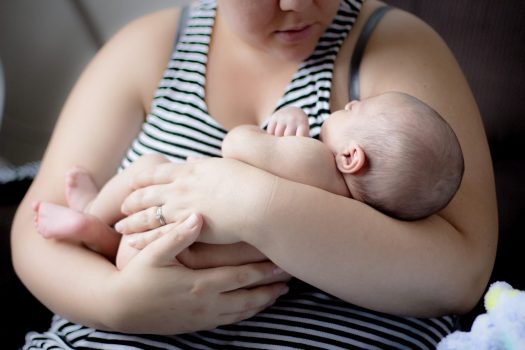As discussed in Can Members of the Military Get SNAP Benefits? we typically hope and believe that members of the military and their families will be provided for when it comes to food, shelter, and medical care. Most of the time, this is the case. However, occasionally families of lower-paid members or families in various special circumstances (such as those with many children or those with a disabled member) need assistance. The Special Supplemental Nutrition Program for Women, Infants, and Children (WIC) program provides specific nutritional support for pregnant and postpartum women and young children, and it is easier to qualify for than Supplemental Nutrition Assistance Program (SNAP).
What is WIC?
WIC provides redeemable vouchers for specific types of nutritious food to pregnant and nursing women and to infants and children under age 5. Examples of the types of food covered include fresh fruits and vegetables, dairy, eggs, meat, nuts, beans, and grains. Families can also receive vouchers for infant formula, an expensive product.
Participants also have regular appointments with WIC staff to talk about nutrition and check in on their health. They will receive nutritional counseling, recipes, and other useful information. The point of the program is to make sure pregnant and postpartum women, infants, and young children who are at nutritional risk are eating well and doing well physically.
How Do You Qualify?
Typically, the family income for WIC applicants must be no more than 185% of the federal poverty line. You can see those numbers here. However, things are somewhat different for members of the military. Individual states have the option of excluding certain important military payments when calculating whether a family is eligible for WIC. These include, but may not be limited to:
- Basic Allowance for Housing (BAH)
- Family Separation Housing (FSH)
- Overseas Housing Allowances (OHA)
- Overseas Continental U.S. (OCONUS) Cost-of-Living Allowances (COLA)
BAH, in particular, is typically not used when determining WIC eligibility. Thus, depending on which state the service member lives in, it may be possible to obtain WIC benefits even if total pay package is significantly higher than 185% of federal poverty.

Pexels/Pixabay.com, CC0
Members serving overseas may be particularly likely to be eligible for WIC due to how eligibility is calculated. This TRICARE page goes into detail about the Women, Infants and Children Overseas Program, which is relatrively new and offers WIC benefits to those overseas. This benefit may be quite important to young families living outside the United States.
To Apply
To apply for WIC, service members serving on base should first find out if there is a WIC office on base. Otherwise, visit this site to find out how to contact the appropriate WIC state agency.
WIC is a modest program that provides healthful foods for growing families. It can temporarily fill financial gaps for families, especially those who struggle due to underemployment or unemployment of a military spouse. Since this is a common issue for military families, WIC has an important role to play.
For more information on government programs that can assist military families with food needs, visit this FDA page.
References:
Lightfoot, L. (2017). How WIC Benefits Military Families. Retrieved from https://themilitarywallet.com/wic-benefits-military-families/
National Military Family Association. (2016). No Child Should Ever Go Hungry—Nutrition Assistance Programs For Military Families. Retrieved from http://www.militaryfamily.org/featured-news/no-child-should-ever-go-hungry.html
Tricare. (2016). Women, Infants and Children Overseas Program. Retrieved from https://tricare.mil/wic/
USDA. (2016). Women, Infants and Children (WIC). Retrieved from https://www.fns.usda.gov/wic/who-gets-wic-and-how-apply












